





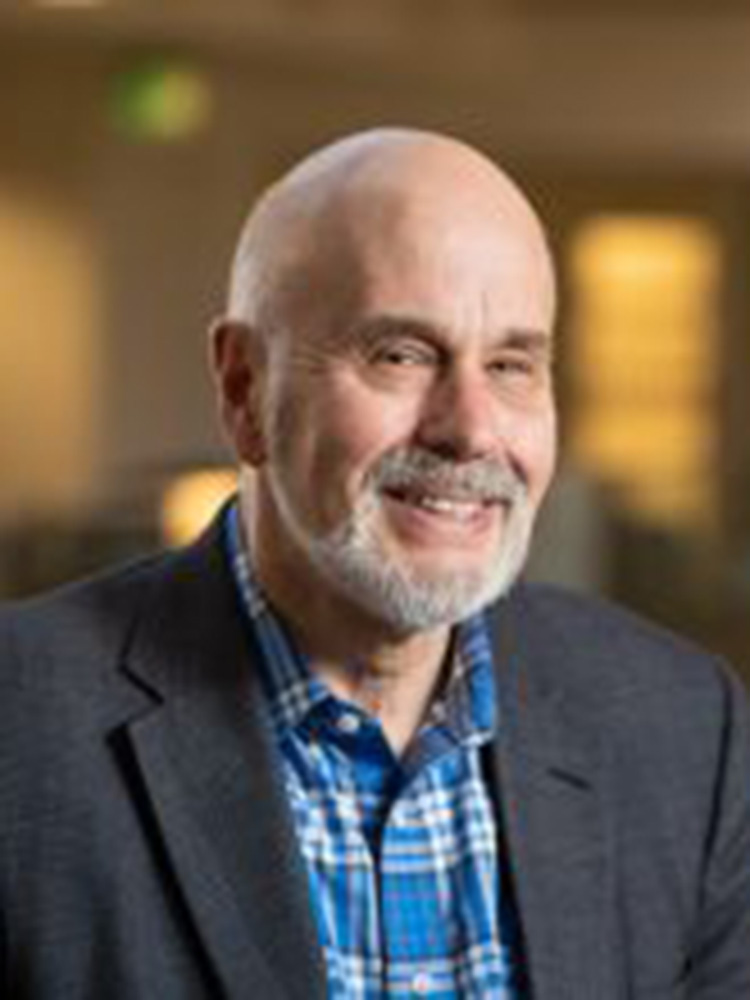
Robert Calderbank (NAS/NAE member, IEEE/AAAS Fellow, AT&T Fellow)
Charles S. Sydnor Professor, Duke University, USA.
Keynote Talk Title: Learning to Communicate
Time: 8:30am-9:30am, Thursday, February 22, 2024
Abstract:
It is common knowledge that a time-domain pulse is well adapted to pure delay channels, and that a frequency domain pulse is well adapted to pure Doppler channels. In this talk we will explain why the Zak-OTFS waveform, a pulse in the delay-Doppler domain, is well adapted to the doubly spread channels that arise in wireless communication.
We will describe how to design the Zak-OTFS waveform so that the input-output (IO) relation is predictable and non-fading, and we will explain how it is possible to learn the IO relation without needing to estimate the underlying channel. We will explore the possibility of a model-free mode of operation, which is especially useful when a traditional model-dependent mode of operation (reliant on channel estimation) is out of reach. We will also describe how the Zak-OTFS waveform supports combined communication and sensing by enabling unambiguous delay-Doppler estimation.
This is joint work with Saif Mohammed, Ananthanarayanan Chockalingam, and Ronny Hadani.
Biography:
Dr. Calderbank directs the Rhodes Information Initiative at Duke University, where he is a Distinguished Professor. He is known for contributions to voiceband modem technology, to quantum information theory, and for co-invention of space-time codes for wireless communication. His research papers have been cited more than 50,000 times, and his inventions are found in billions of consumer devices. Dr. Calderbank was elected to the National Academy of Engineering in 2005, to the National Academy of Inventors in 2015, and to the American Academy of Arts and Sciences in 2022. He has received a number of awards, including the 2013 IEEE Hamming Medal for contributions to information transmission, and the 2015 Claude E. Shannon Award.
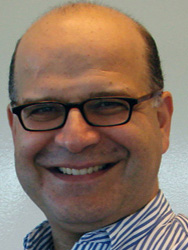
Aggelos K. Katsaggelos (IEEE Fellow)
Joseph Cummings Professor Department of ECE, Northwestern University, USA.
Keynote Talk Title: On Label Efficient Learning
Time: 8:30am-9:30am, Monday, February 19, 2024
Abstract:
In this talk we will address certain approaches on label efficient learning of relevance to communications problems. We will focus on the description of approaches towards anomaly detection. An issue with some of these approaches is the availability of anomaly-free data during the training of a generative model. Three paths will be discussed in addressing this issue: The use of (i) crowdsourcing and means to evaluate and promote annotators; (ii) multiple instance learning; and (iii) active learning related to out-of-distribution detection. Examples will be presented, and open problems and future directions of research and development will be discussed.
Biography:
Aggelos K. Katsaggelos received the B.S. degree in electrical and mechanical engineering from the Aristotle University of Thessaloniki, Thessaloniki, Greece, in 1979, and the M.S. degree and the Ph.D. degree in electrical engineering under the supervi- sion of Dr. R. W. Schafer from the Georgia Institute of Technology, Atlanta, GA, USA, in 1981 and 1985, respectively. He is a Professor and an AT&T Chair with the EECS Department, Northwestern University, Evanston, IL, USA. He also runs the Image and Video Processing Laboratory (IVPL), whose objective is to generate cutting- edge research results in the fields of multimedia signal processing, multimedia communications, and computer vision. IVPL works in a variety of problems (e.g., recovery, compression, segmentation, and speech and speaker recog- nition) and applications areas (e.g., medical, multispectral, and astronomical image processing). He is the co-inventor of 17 international patents. He is the coauthor of several award-winning papers.
Dr. Katsaggelos is the recipient of the IEEE Third Millennium Medal in 2000, the IEEE Signal Processing Society Meritorious Service Award in 2001, and the IEEE Signal Processing Society Technical Achievement Award in 2010. He is a Fellow of SPIE in 2009.

H. Vincent Poor (NAS/NAE, IEEE/AAAS Fellow)
Michael Henry Strater University Professor, Princeton University, USA.
Keynote Talk Title: Integrated Sensing and Communications: Tradeoffs and Designs
Time: 8:30am-9:30am, Tuesday, February 20, 2024
Abstract:
Communications and radar are two major consumers of radio spectrum. Integrated sensing and communications (ISAC) is an approach to mitigating this bandwidth consumption by integrating communications and sensing functions in the same waveform. ISAC is expected to be an important aspect of next-generation communication systems, with applications ranging from environmental monitoring to human-computer interaction. This talk will discuss inherent tradeoffs arising in ISAC systems and present some approaches to ISAC design.
Biography:
H. Vincent Poor is the Michael Henry Strater University Professor at Princeton University, where research interests are in the areas of information theory, machine learning and network science, and their applications in wireless networks, energy systems and related fields. He has also held visiting appointments at several other universities as well, including most recently at Berkeley and Cambridge. Among his recent publications is the book Machine Learning and Wireless Communications (Cambridge University Press, 2022). Dr. Poor is a member of the U.S. National Academy of Engineering and the U.S. National Academy of Sciences, and he is a foreign member of the Chinese Academy of Science, the Royal Society and other national and international academies. He received the IEEE Alexander Graham Bell Medal in 2017.
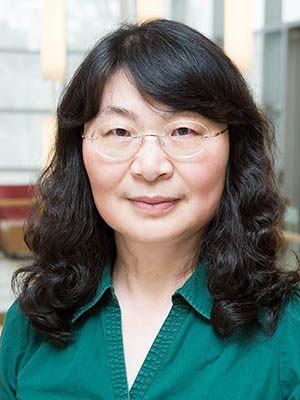
Yuanyuan Yang (IEEE/NAI Fellow)
SUNY Distinguished Professor, Stony Brook University, USA.
Keynote Talk Title: Entanglement Management over Quantum Internet
Time: 8:30am-9:30am, Wednesday, February 21, 2024
Abstract:
The Quantum Internet lays the groundwork for a revolutionary era of interconnected quantum systems and applications, facilitating the generation, distribution, and processing of quantum information in quantum communications and computing. Quantum entanglement is a distinctive quantum phenomenon where particles stay correlated despite distance. Long-distance entanglement generation, is a fundamental function of the Quantum Internet for advancing quantum communications and computing. However, the probabilistic nature of quantum entanglement presents challenges, with success rates diminishing over extended distances. To address this, entanglement-swapping emerges as a key strategy, posing a complex but fundamental entanglement management problem. In this presentation, we introduce a Quantum Internet entanglement management scheme to maximize quantum-user pairs and throughput. The scheme formulates the problem as two sequential integer programming problems, proposing efficient algorithms and analyzing their time complexity and performance bounds. Comparative evaluations reveal the scheme's superiority, marking a significant leap in quantum entanglement efficiency.
Biography:
Yuanyuan Yang is currently a SUNY Distinguished Professor in the Department of Electrical & Computer Engineering and Department of Computer Science at Stony Brook University, New York, which she joined in 1999. From 2018-2022, she served as a program director in the National Science Foundation's Directorate of Computer and Information Science and Engineering. She directed the core computer architecture program and was on the management team of several cross-cutting programs. At Stony Brook, she served as the Associate Dean for Diversity and Academic Affairs of College of Engineering and Applied Sciences from 2016-2018, a Division Director of New York State Center of Excellence in Wireless and Information Technology from 2007-2016 and the Graduate Program Director of ECE Department from 2001-2016. She has authored or coauthored more than 500 papers in major journals and refereed conference proceedings and holds seven US patents in her areas of research which include cloud computing, edge computing, quantum computing and mobile computing. She is currently the Editor-in-Chief of IEEE Transactions on Cloud Computing. She was an Associate Editor-in-Chief and Associated Editor for IEEE Transactions on Computers, and an Associate Editor for IEEE Transactions on Parallel and Distributed Systems. She was also the General Chair, Program Chair, or Vice Chair for several major conferences and a Program Committee Member for numerous conferences. She is a Fellow of National Academy of Inventors (NAI) and a Fellow of IEEE.
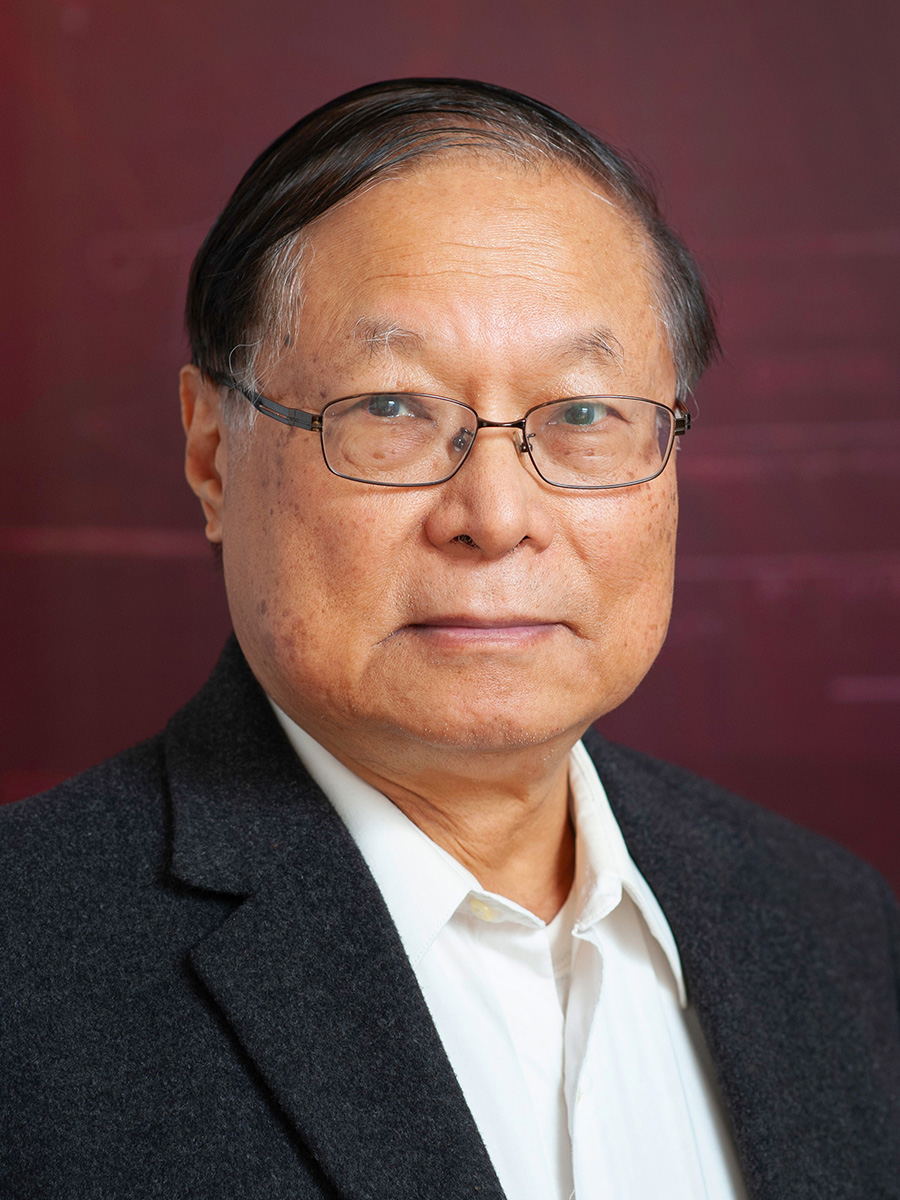
David Hung-Chang Du (IEEE/MSI Fellow)
Qwest Chair Professor, University of Minnesota, USA.
Plenary Talk Title: Computing In-X for Supporting Big Data Applications
Time: 13:30pm-14:30pm, Wednesday, February 21, 2024
Abstract:
Many challenges exist in current big data era. We intend to fully utilize the available data for making critical decisions to benefit individuals, business, and society. These include how to store enormous amount of data for a very long time, how to quickly identify the relevant data from all the available data, and how to process relevant data efficiently for many computing purposes. In this talk, we introduce several potential improvements, including non-volatile memory, active storage devices, and software-defined networks, in our current computing environment that may help us to face these challenges. In general, to solve these challenges we need to speed up both the data processing and accessing capabilities/performance as well as to increase the space capacities of memory and storage. Therefore, we will especially introduce computing in-storage and in-networking in addition to computing in-memory. Several examples of each category will be presented. The potential benefits of each category of computing in-X will also be summarized and compared.
Biography:
David Hung-Chang Du joined the Department of Computer Science & Engineering as an assistant professor in 1981 and was later promoted to a professor in 1991. He has also been a Qwest Chair Professor since 2007 and was the Director of NSF I/UCRC Center for Research in Intelligence Storage at the University from 2014-21. Du served as the vice president of engineering 3CX in 1998 and was the program director of the National Science Foundation from 2006-08. Du has been an IEEE Fellow since 1998, is a Fellow of the Minnesota Supercomputer Institute, and has previously received the IEEE and ACM Recognition of Service Award.
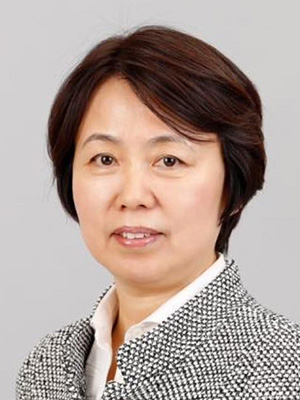
Yusheng Ji (IEEE Fellow)
National Institute of Informatics (NII), Tokyo, Japan
Plenary Talk Title: Leveraging Machine Learning for Traffic Engineering in Large-scale Networks
Time: 14:30pm-15:30pm, Thursday, February 22, 2024
Abstract:
Traffic engineering (TE) allows network operators to manage network resources to attain specific performance objectives. This involves ensuring efficient utilization of network resources, maintaining reliable network operations, and delivering advanced network services. Nevertheless, in large-scale networks, overcoming the challenges posed by the high cost of acquiring comprehensive traffic data and the large complexity of solving TE optimization problems becomes a formidable task, making it difficult to adapt to the dynamic traffic demands and network conditions. In this talk, we focus on TE problems in the realms of traffic prediction and routing, aiming to achieve load balance and prevent network congestion. Given partially measured traffic data, we explain how to take advantage of machine learning-based traffic prediction for TE. In addressing scalability issues, we demonstrate that distributed approaches employing multi-agent reinforcement learning can enhance system performance through efficient knowledge sharing and joint training.
Biography:
Yusheng Ji received the B.E., M.E., and D.E. degrees in electrical engineering from the University of Tokyo. She joined the National Center for Science Information Systems (NACSIS), Japan, in 1990. She is currently a Professor and Director of Information Systems Architecture Science Research Division, National Institute of Informatics (NII), Tokyo, Japan, and a Professor at the Graduate University for Advanced Studies (SOKENDAI), Japan. Her research interests include resource management in wireless networks, vehicular networking, and mobile computing. She has served as an Editor of IEEE Transactions of Vehicular Technology from 2012 to 2021, and is serving as an Associate Editor of IEEE Vehicular Technology Magazine. She has served as a Symposium Co-Chair of IEEE GLOBECOM 2012 and 2014, Track Co-Chair of IEEE VTC 2016 Fall and 2017 Fall, General Co-chair of ICT-DM 2018, Symposium Co-Chair of IEEE ICC 2020, General Co-chair of MSN 2020, and TPC Co-chair of INFOCOM 2023. She is a fellow of IEEE.
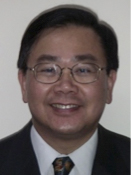
Victor Leung (IEEE/RSC/EIC/CAE Fellow)
Professor, University of British Columbia, Canada
Plenary Talk Title: Collaborative Secure Edge Intelligence for 6G IoT
Time: 14:30pm-15:30pm, Tuesday, February 20, 2024
Abstract:
Smart cities, smart factories, smart offices, and smart homes are important application scenarios that motivate the development of 6G network to support massive deployment of Internet of Things (IoT) devices enabled by pervasive deployment of artificial intelligence (AI) throughout the network. Many emerging new applications will have stringent latency requirements, which can be satisfied by use of multi-access edge computing (MEC). Therefore, it is timely to study how to provision AI in edge nodes, so called edge intelligence. In very large networks, edge nodes may belong to different entities. To share data in a verifiable manner among edge nodes without them sharing trust, distributed ledger technologies (DLT) based on blockchain can be used. We present an overview of collaborative secure edge intelligence utilizing blockchains, and outline several challenges that we are addressing in this paradigm. We present a novel proof of useful work consensus mechanism that substantially reduces latency in blockchain-based edge training. We propose a new mean field correction scheme to defend against poisoning attacks on local training data sets. We present an innovative aggregation algorithm that improves global model accuracy in the presence of local data sets with diverse distributions. To deal with more extreme out-of-domain shifts in data set distributions, we further propose a novel algorithm to facilitate switching between global and local models at edge nodes.
Biography:
Victor C. M. Leung is a Distinguished Professor of Computer Science and Software Engineering at Shenzhen University. He is also an Emeritus Professor of Electrical and Computer Engineering and director of the Wireless Networks and Mobile Systems Laboratory at the University of British Columbia (UBC), where he was the inaugural holder of the TELUS Mobility Research Chair before his retirement in 2019. His research is in the broad areas of wireless networks and mobile systems, in which he has co-authored a large number of refereed journal/conference papers and book chapters, and is named in the current Clarivate Analytics list of “Highly Cited Researchers”. Dr. Leung is serving on the editorial boards of the IEEE Transactions on Green Communications and Networking, IEEE Transactions on Cloud Computing, IEEE Transactions on Computational Social Systems, IEEE Access, and several other journals. He received the IEEE Vancouver Section Centennial Award, the 2011 UBC Killam Research Prize, the 2017 Canadian Award for Telecommunications Research, the 2018 IEEE TCGCC Distinguished Technical Achievement Recognition Award, and the 2018 MSWiM Reginald Fessenden Award. He co-authored papers that won the 2017 IEEE ComSoc Fred W. Ellersick Prize, the 2017 IEEE Systems Journal Best Paper Award, the 2018 IEEE CSIM Best Journal Paper Award, and the 2019 IEEE TCGCC Best Journal Paper Award. He is a Life Fellow of IEEE, and a Fellow of the Royal Society of Canada (Academy of Science), the Canadian Academy of Engineering, and the Engineering Institute of Canada.
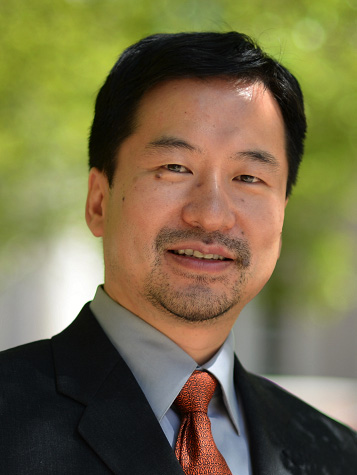
Shiwen Mao (IEEE Fellow)
Professor and Earle C. Williams Eminent Scholar, Auburn University, USA.
Plenary Talk Title: AIGC for RF Sensing
Time: 13:30pm-14:30pm, Thursday, February 22, 2024
Abstract:
The performance of deep learning (DL) empowered wireless communications, networking, and sensing depends on the availability of sufficient high-quality radio frequency (RF) data, which is more difficult and expensive to collect than other types. To overcome this obstacle, we proposal several AIGC approaches to generate synthetic RF data labeled with specified human activities for multiple wireless sensing platforms, such as WiFi, RFID, mmWave radar, including a conditional Recurrent Generative Adversarial Network (R-GAN) approach and diffusion model based approaches. The high quality of the generated RF data is validated by metrics of Structural Similarity Index (SSIM) and Frechet Inception Distance (FID), as well as representative downstream tasks of human activity recognition (HAR), where the model trained with sufficient synthesized data outperforms the model trained by real data.
Biography:
Shiwen Mao (S'99-M'04-SM'09-F'19) is a Professor and Earle C. Williams Eminent Scholar, and Director of the Wireless Engineering Research and Education Center at Auburn University. Dr. Mao's research interest includes wireless networks, multimedia communications, and smart grid. He is the editor-in-chief of IEEE Transactions on Cognitive Communications and Networking. He received the IEEE ComSoc MMTC Outstanding Researcher Award in 2023, the 2023 SEC Faculty Achievement Award for Auburn, the IEEE ComSoc TC-CSR Distinguished Technical Achievement Award in 2019, the Auburn University Creative Research & Scholarship Award in 2018, the NSF CAREER Award in 2010, and several service awards from IEEE ComSoc. He is a co-recipient of the 2022 Best Journal Paper Award of IEEE ComSoc eHealth Technical Committee, the 2021 Best Paper Award of Elsevier/KeAi Digital Communications and Networks Journal, the 2021 IEEE Internet of Things Journal Best Paper Award, the 2021 IEEE Communications Society Outstanding Paper Award, the IEEE Vehicular Technology Society 2020 Jack Neubauer Memorial Award, the 2018 Best Journal Paper Award and the 2017 Best Conference Paper Award from IEEE ComSoc MMTC, the 2004 IEEE Communications Society Leonard G. Abraham Prize in the Field of Communications Systems, and 10 IEEE best conference paper/demo awards.
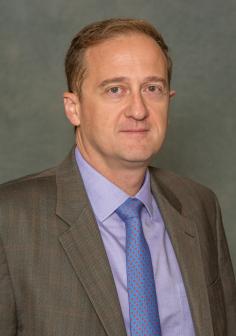
John Papapolymerou (IEEE Fellow)
MSU Foundation Professor, Michigan State University, USA.
Plenary Talk Title: Heterogeneous Integration and Packaging of RF electronics and components for 5G+ Wireless Communication Systems Using Additive Manufacturing Techniques
Time: 13:30pm-14:30pm, Tuesday, February 20, 2024
Abstract:
As we approach the physical limits of transistor technology and taking into account the financial challenges of building the relevant foundries, integration and packaging of different chiplets that are readily available will be a key factor for the successful development of cost-effective hardware for future 5G+ wireless communication and sensing systems that will enable a plethora of applications important to humanity. This talk will present the usage of additive manufacturing technologies as a promising solution for the heterogeneous integration and packaging of a variety of RF chiplets and components with a focus on Aerosol Jet Printing (AJP) that can achieve manufacturing resolution in the order of 10 microns. The presentation will cover the AJP fundamentals and several examples of integrated RF modules and components from 5 GHz to 220 GHz, as well as related challenges and future directions in this area.
Biography:
John Papapolymerou received the B.S.E.E. degree from the National Technical University of Athens, Athens, Greece, in 1993, the M.S.E.E. and Ph.D. degrees from the University of Michigan, Ann Arbor, in 1994 and 1999, respectively. From 1999-2001 he was an Assistant Professor at the Department of Electrical and Computer Engineering of the University of Arizona, Tucson and during the summers of 2000 and 2003 he was a visiting professor at The University of Limoges, France. From 2001-2005 he was an Assistant Professor at the School of Electrical and Computer Engineering of the Georgia Institute of Technology, where he is currently an Associate Professor. He has authored or coauthored over 240 publications in peer-reviewed journals and conferences. His research interests include the implementation of micromachining techniques and MEMS devices in microwave, millimeter-wave and THz circuits and the development of both passive and active planar circuits on semiconductor (Si/SiGe, GaAs) and organic substrates (liquid crystal polymer-LCP, LTCC) for System-on-a-Chip (SOC)/ System-on-a-Package (SOP) RF front ends.
Dr. Papapolymerou is the Chair for Commission D of the US National Committee of URSI. He is Associate Editor for IEEE Microwave and Wireless Component Letters and IEEE Transactions on Antennas and Propagation. During 2004, he was the Chair of the IEEE MTT/AP Atlanta Chapter. He was the recipient of the 2004 Army Research Offi ce (ARO) Young Investigator Award, the 2002 National Science Foundation (NSF) CAREER award, the best paper award at the 3rd IEEE International Conference on Microwave and Millimeter-Wave Technology (ICMMT2002), Beijing, China and the 1997 Outstanding Graduate Student Instructional Assistant Award presented by the American Society for Engineering Education (ASEE), The University of Michigan Chapter. His students have also been recipients of several awards including the Best Student Paper Award presented at the 2004 IEEE Topical Meeting on Silicon Monolithic Integrated Circuits in RF Systems, the 2007 IEEE MTT-S Graduate Fellowship, and the 2007/2008 and 2008/2009 IEEE MTT-S Undergraduate Scholarship/Fellowship.
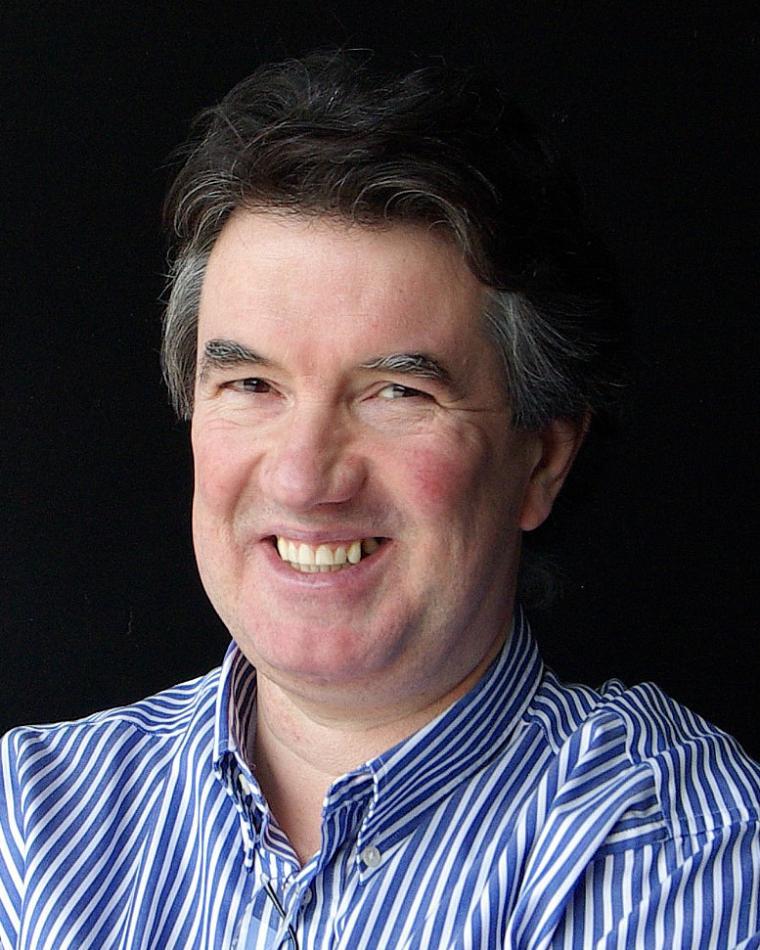
Dirk Slock (IEEE/EURASIP Fellow)
Professor, EURECOM, France
Plenary Talk Title: ACA Bayes with Wi-PHY Apps - Asymptotically Correct Approximate Bayes with Wireless PHY Applications
Time: 14:30pm-15:30pm, Wednesday, February 21, 2024
Abstract:
In the areas of communications and sensing, the demand for effective approximate Bayesian estimation techniques is paramount.
Sparse channel modeling extends traditional model selection, enabling optimized models based on available training data. Compressed sensing techniques extend Linear Minimum Mean Squared Error (LMMSE) estimation by a hierarchical Bayesian formulation. In multi-user detection or (semi-)blind channel estimation, going beyond LMMSE and Gaussian models represents a leap.
A straightforward approximate Bayesian estimation method is Variational Bayes (VB). VB can be seen as an extension of the Expectation-Maximization (EM) technique to scenarios involving random parameters, thereby yielding not only point estimates but also approximate posterior distributions. Notably, while VB yields accurate means in Gaussian problems, it tends to underestimate variances significantly.
An even more refined technique for approximate Bayes is Expectation Propagation (EP). Both VB and EP share the underlying concept of minimizing the Kullback-Leibler Divergence (KLD), albeit with different trial posteriors.
In the case of EP, the KLD leads to the so-called Bethe Free Energy (BFE). Exact alternating constrained minimization of the BFE leads to Belief Propagation (BP), whereas EP restricts approximating pdfs to be in an exponential family.
Taking a fresh look at alternating minimization of a KLD, the Central Limit Theorem leads to Gaussianity of the extrinsics in the marginal posteriors in moderate asymptotic settings. This in turn leads to what we call Gaussian Extrinsic Propagation, which sheds new light on characterizing performance beyond the loose Bayesian Cramer-Rao bound. Focusing on the Generalized Linear Model,
assuming a n.i.i.d. (sign) statistical model for the measurement matrix allows asymptotically to find the correct variances without matrix inversions.
This leads to Approximate Message Passing (AMP) in which the extrinsics are related to Componentwise Conditionally Unbiased MMSE estimation.
Reformulating AMP to correspond to alternating minimization of an asymptotic version of the BFE leads to a provably convergent algorithm.
Alternating minimization becomes tricky in the presence of constraints and we shed some light on the desirable behavior of the Alternating Directions Method of Multipliers (ADMM) approach.
As an application we handle the pilot contamination problem in cellular or cell-free (MIMO) systems by semi-blind channel estimation. We review various techniques and bounds but in particular we consider EP approaches for approximate MMSE channel estimation.
Biography:
Dirk T.M. Slock received an EE degree from Ghent University, Belgium in 1982. In 1984 he was awarded a Fulbright scholarship for Stanford University, USA, where he received the MSEE, MS in Statistics, and PhD in EE in 1986, 1989 and 1989 resp. While at Stanford, he developed new fast recursive least-squares algorithms for adaptive filtering. In 1989-91, he was a member of the research staff at the Philips Research Laboratory Belgium. In 1991, he joined EURECOM where he is now professor. At EURECOM, he teaches statistical signal processing (SSP) and signal processing techniques for wireless communications. He invented semi-blind channel estimation, the chip equalizer-correlator receiver used by 3G HSDPA mobile terminals, spatial multiplexing cyclic delay diversity (MIMO-CDD) now part of LTE, and his work led to the Single Antenna Interference Cancellation (SAIC) integrated in the GSM standard in 2006. Recent keywords are multi-cell multi-user (Massive) MIMO, imperfect CSIT, distributed resource allocation, variational and empirical Bayesian learning techniques, large random matrix analysis, audio source separation, location estimation and exploitation. He graduated about 40 PhD students, leading to an edited book and 500+ papers. In 1992 he received one best journal paper award from IEEE-SP and one from EURASIP. He is the coauthor of two IEEE Globecom'98, one IEEE SIU'04, one IEEE SPAWC'05, one IEEE WPNC’16 and one IEEE SPAWC’18 best student paper award, and a honorary mention (finalist in best student paper contest) at IEEE SSP'05, IWAENC'06, IEEE Asilomar'06 and IEEE ICASSP’17. He was an associate editor for the IEEE-SP Transactions in 1994-96 and the IEEE Signal Processing Letters in 2009-10. He was the General Chair of the IEEE-SP SPAWC'06 and IWAENC’14 workshops, and EUSIPCO’15. He cofounded the start-ups SigTone in 2000 (music signal processing products) and Nestwave in 2014 (Ultra Low-Power Indoor and Outdoor Mobile Positioning). He is a Fellow of IEEE and EURASIP. In 2018 he received the URSI France medal.